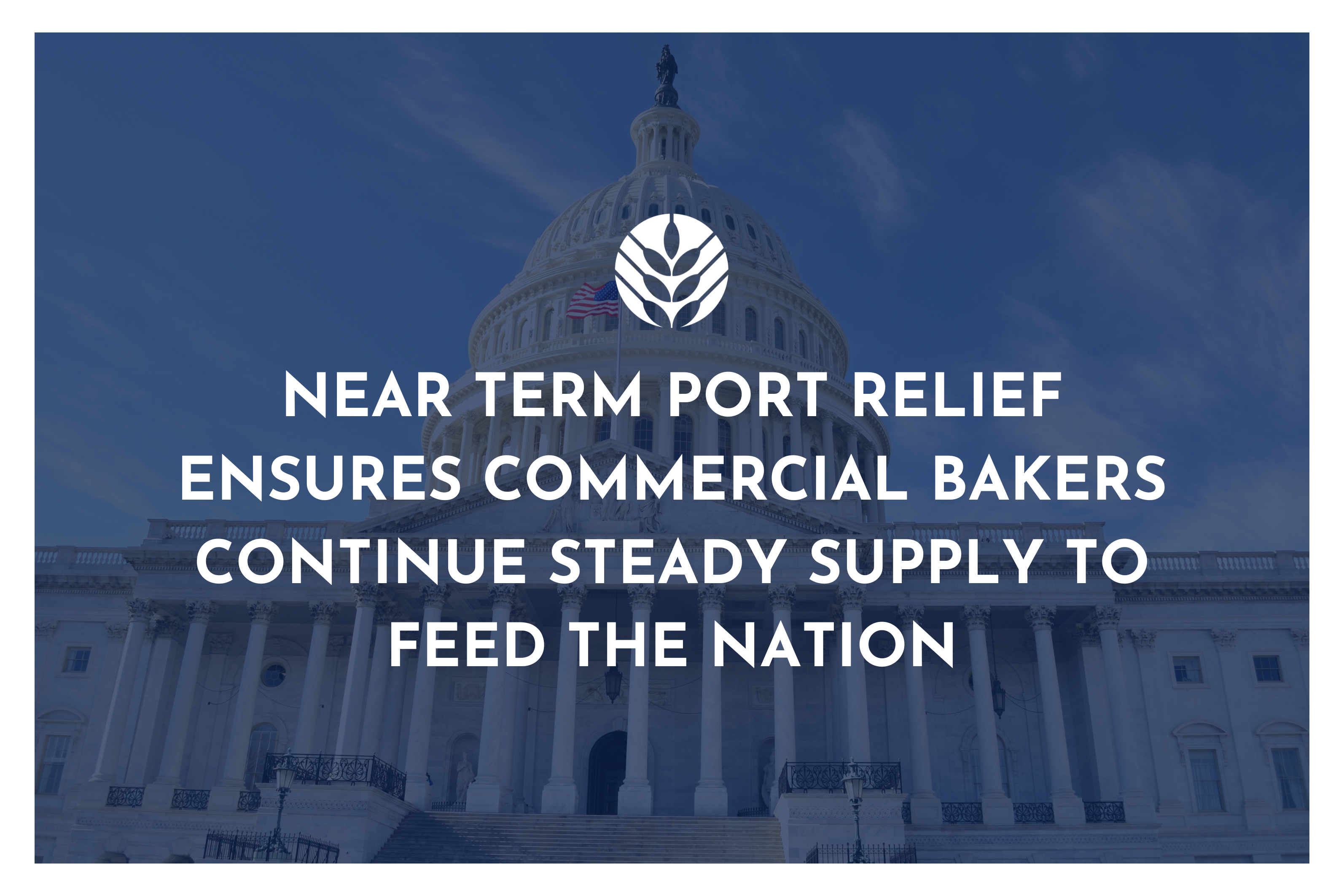Sweet Grass Kitchen Founder/CEO Julie Berliner and Marketing Director Jesse Burns teamed up to teach baking professionals how to use regulation as a force for innovation during a 2019 International Baking Industry Exposition education session at the Las Vegas Convention Center.
Sweet Grass is a small-batch wholesale bakery that produces freshly baked, whole-flower, cannabis-infused edibles throughout Colorado. Founded in 2009, when only medicinal was allowed, the bakery was ahead of the curve when recreational use was allowed in 2014.
“I started Sweet Grass 10 years ago, and the theme truly since then has been uncertainty,” Berliner said. “The regulators were kind of building the plane as we, as business owners, were flying it. It’s important that anyone approaching a business in cannabis keep in mind that uncertainty is the only constant these days.”
Berliner saw plenty of businesses, especially early on, crashing and burning because a new regulation would come into play, sometimes overnight.
“All of the sudden businesses that had been set up for a month or a few months were no longer in compliance and would have to shut their doors,” she said. “I didn’t realize it 10 years ago, but I see now how we harnessed this kind of uncertainty and used it to build the foundation of Sweet Grass.”
Berliner built her first bakery in a race car trailer parked inside a warehouse.
“It was on wheels and was semi-mobile, if you will,” she said. “I was able to convince the city and the state that I was not driving this thing around like a food truck, but that if I needed to move, if something changed, then I would be able to move.”
Fortunately, Berliner never had to pack up.
“But it provided me with reassurance, my landlord with reassurance and probably my employees and the people that were working with me reassurance that I would be flexible in times of change.”
Burns said while building a bakery in a race car trailer is by no means the most efficient way to do business, it has given Sweet Grass a unique origin story.
“We were able to take this trailer concept and flip it into the foundation of the brand that Julie has built. Really this story, this little red trailer, shows up across all of our marketing,” Burns said. “It’s all about flipping the conversation, turning uncertainty into opportunity.”
Nothing about being on the cutting edge of the cannabis industry has been easy for Sweet Grass. Part of the challenge, Berliner explained, is that Colorado cannabis regulators make the regulations and enforce them but are hesitant to provide manufacturers with advice on whether or not products will meet the regulations.
“Maybe it’s a liability for them, I’m not sure,” Berliner said. “But they’re actually pretty hesitant to tell us before a regulation comes into play, ‘Yes, that’s in compliance,’ or ‘No, that’s not.’ Often Jesse and I will turn to our biggest customers and ask them, ‘Is this something that you would interpret as being in your standards for compliance.’ And when they say, ‘Yes,’ that’s usually our final stamp of approval.”
And getting that stamp has to happen over and over. In less than three years, Sweet Grass had to change the labeling at least seven times.
“In any normal world, I would want to go to my packaging vendor or my supplier and say, ‘I want to order this massive amount,’ so I can get the lowest cost per label,” Berliner said. “But that wasn’t something that I chose to do. I saw a lot of my colleagues do that. And now they have these little, or I should say big, non-compliant packaging graveyards in their warehouse. Yes, they got a low cost per unit, but they ended up not being able to use a lot of that product.”
Instead, Sweet Grass worked with a digital printer vs one that required plates for every change. It was more expensive, but Berliner said it was a homemade insurance policy against change. She was also determined to find someone in the neighborhood, which came in handy when they had to rush to the printer to pick up the labels they needed.
“In these emerging markets that you guys are going to be exploring in the next few years, we can’t stress enough small inventory, digital printing, all these sorts of things that you can flip on a dime,” Burns said, adding that many of their Colorado colleagues have brought label printing machines into their facilities and have graphic designers on staff.
“This isn’t like FDA regulations. You don’t get five years to comply. You get four, five, six months to comply,” he said. “There are knee-jerk reactions and being ready for these seven label changes I had to do in three years. I was losing it really. But we set ourselves up in a place that we were able to take advantage of that and actually have better inventories than a lot of our competitors. It worked in our favor in the end.”
Another labeling challenge arrived when regulators determined that every last cookie must be labeled with a symbol to indicate it contained THC. While her competitors turned to edible inks, Berliner was determined to keep her ingredient list simple. So she brought in a laser to etch the label onto products.
Packaging was another challenge that Sweet Grass turned into opportunity. When Berliner launched the company it was only medicinal, and her chocolate chip cookies were the size of a normal cookie, about 15 to 20 grams.
“It’s big, and you know you can eat the whole thing,” she explained. “So that was the world we lived in for five years. And then recreational legalization happened, and a couple of things happened side-by-side. On the recreational side, the serving size was limited to 10 milligrams of THC per serving. That’s in Colorado. Every state is a little bit different. But usually there’s a limitation on serving size. So we went from having no limit to the amount of cannabis in one cookie to 10 milligrams or less being the limit.”
The second thing that happened is that they had to start packing products in opaque, child-resistant and tamper-evident packaging. In 2014, child-resistant packaging was limited. The most common solution was pill bottles. With change ever-present, Berliner was reluctant to make big investments in custom packaging.
“So pill bottles were my option,” she said. “We ended up in a pop-top version of a pill bottle, and we designed our cookies in miniature to fit into that bottle. The smaller cookie also ended up translating to the THC limits.”
“What’s cool is that we were able to take this regulation, the whole industry was, and build an educational piece for the consumer,” Burns said. “Mind you, this was very new in 2017, we’re selling mind-altering baked goods. So being able to properly educate your end consumer with things as simple as the visual cues, the size of a baked good, can signal relative potency, big cookies are stronger than small cookies. While this seems simple, this incredible innovation for us and helps customers understand new products.”
“Because cannabis is so new, our consumer is also very novice,” Berliner added. “Even for those of us who have been consuming cannabis in some form for decades, legal cannabis is new. And creating products that inform and educate consumers is a really important thing to do.”
She explained that there’s not yet a social intuition about cannabis the way there is around alcohol.
“Even as kids before we’re any type of consumer of alcohol, we know that drinking an entire bottle of vodka is probably not going to be a good thing. That social intuition is still being established in cannabis foods, especially because there’s a delayed onset when you eat a cannabis food. It takes a bit of time vs when you smoke flower. So it’s incredibly important to us at Sweet Grass that we’re creating products that can educate the consumer.”
Sweet Grass also faced the challenge of the opaque container. How do you sell baked goods that your customers can’t see or smell? Burns said they did it with custom branding focused at the purchase point.
“Spending a lot of your marketing dollars and your branding dollars as close as you can get to the point of sale is essential, especially in these places where you can’t see products and you can’t have pictures,” he said. “You have to sell by something else and it’s that connection you make with the consumer, the trust they have in your brand and potentially the word of mouth around that.”
Packaging restraints led to another innovation Sweet Grass is known for, Cannabutter. Rather than fashion child-resistant boxes for the multitude of customer requests from danishes to wedding cakes, Berliner’s team devised a way to sell a stick of cannabis-infused clarified butter.
“It’s perfectly portioned to dose,” Burns said. “So when someone wants to buy a red velvet cake, we can now point them in the direction of the butter. So you take this regulatory environment and see how you can take a step back and take a step forward and actually create a product that will satisfy that same consumer need without having to put a red velvet cake into some kind of giant pill bottle.”
Berliner said her best advice for bakers looking at cannabis is to be part of the conversation. Join local workgroups and be aware of the legislative process.
“It’s a valuable way of getting ahead of the curve and understanding what might be coming,” she said. “I also got involved in the conversation so I could provide a business owner’s perspective on how that was going to affect my business. These legislators in every state, they’re learning, too. I’m new to this, but they are as well. And my experience has been that for the most part, they want to collaborate. They want to know as much as possible. And not being in my shoes, it’s difficult for them to understand the implications that some of these regulations might have. So while some of these regulatory changes I didn’t agree with, I was involved in the conversation and, hopefully during that process of collaboration, shed light on the kinds of things that may come up not just for myself but for my colleagues in the industry.”
Now regulators from the enforcement division will often tour Sweet Grass and show other state officials what it’s like in a cannabis manufacturing facility.
“They use us as an example, and it’s pretty cool that we were able to open that door,” Berliner said.
Berliner said she’s made plenty of mistakes along the way, and Sweet Grass isn’t the perfect success story. Going in right out of college, she could have been a school teacher, but not knowing what she was up against, she took the entrepreneurial route instead. Challenges are part of what she feels have made her company great.
“When things are really easy, and you’ve got tons of money to work with, it’s hard to think critically,” she said. “But when you’re backed against this wall and cornered into, ‘If I don’t figure this out it’s over,’ then you just do it. You figure it out. And that’s what Sweet Grass did many many times over the years. We got to this boiling point, and it helped us figure out different ways to do things. It’s not easy, but I encourage you all to embrace that change. It’s inevitable. Pretending it’s not going to happen or resisting, it just makes it even harder than it already is.”





